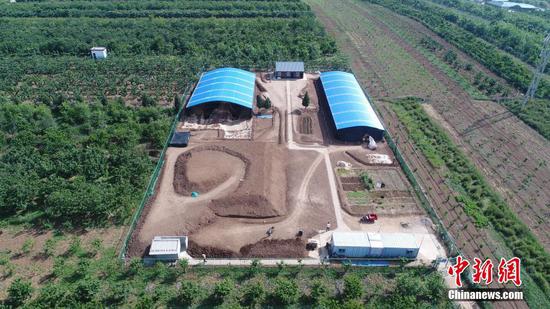
A visitor checks out ASEAN imports at a commodities fair in Wuhan, Hubei province, on Oct 12. (Photo/Xinhua)
The expected implementation of the Regional Comprehensive Economic Partnership agreement will usher in a new wave of growth for China's cross-border e-commerce sector, experts and business leaders said.
Signed in November last year among 15 Asia-Pacific economies including China and all the 10 member states of the Association of Southeast Asian Nations, the agreement will take effect on Jan 1 in 10 signatory members-namely Brunei, Cambodia, Laos, Singapore, Thailand, Vietnam, China, Japan, New Zealand and Australia.
Wang Xin, executive president of the Shenzhen Cross-Border E-Commerce Association, said implementation of the RCEP agreement, which will be carried out first in the 10 countries and is expected to extend to all the 15 members in the future, will bring multiple opportunities to China's fast-growing cross-border e-commerce businesses.
"The RCEP covers both China and ASEAN, two of the most promising markets in the world whose populations are about 1.4 billion and 600 million, respectively. It is expected that more than 90 percent of trade in goods will enjoy zero tariffs in the RCEP region, providing a very favorable environment for trade and investment growth," Wang said.
Costs of regionally sourced raw materials for Chinese enterprises will be significantly reduced under the trade rules of the agreement, especially the common rules of origin that only require 40 percent of regional content for goods to be considered of RCEP origin, much lower than the threshold of other free trade agreements.
That also means the competitiveness of Chinese suppliers, which are already known for offering quality products at relatively cheap prices, will be further bolstered, creating opportunities for Chinese businesses to sell goods to overseas markets in the RCEP region, she said.
More importantly, as the agreement asked members to simplify Customs procedures and expand coverage of preferential tariff policies, efficiency of cross-border logistics will be effectively improved with costs largely reduced. This will benefit the growth of not only logistics enterprises but also overseas warehousing businesses and cross-border e-commerce firms, Wang said.
Experts said the RCEP agreement will facilitate Chinese cross-border e-commerce enterprises in expanding their presence in markets that currently impose relatively high tariffs on Chinese products.
Wei Jianguo, vice-chairman of the Beijing-based China Center for International Economic Exchanges, said the agreement has high-standard policies for e-commerce and other sectors. It will become easier for small and medium-sized enterprises, especially private enterprises, in China to go global, Wei said.
Wang said cross-border e-commerce has great growth potential in fields like electronic products, apparel and toys in the Pearl River Delta region, sports equipment, electrical products and home fabrics in the Yangtze River Delta region, and electronic equipment, biomedicines and auto parts in the Beijing-Tianjin-Hebei region.
The growth potential is supported by traditional offline foreign trade, the fast development of Chinese e-commerce platforms and the push by the country's authorities for innovation-driven development.
Vincent Yang, CEO of JD Central, an e-commerce joint venture between Chinese e-commerce giant JD and Central Group, the largest retailer in Thailand, said implementation of the RCEP agreement promises a future of unified standards and procedures for trade in the region.
This will facilitate standardized management and local operations for businesses, create a better environment for the development of cross-border e-commerce businesses and also boost economic and trade cooperation.
Underpinned by the large population, fast economic growth and wide internet access, Southeast Asia has become a market of great potential for China's cross-border e-commerce enterprises. JD Central, which officially started operations on Sep 28,2018, registered fast growth in the past three years, Yang said.
The company established eight localized warehouses in Thailand. Thanks to that, it is able to deliver 95 percent of purchases in Bangkok within a day after customers place their orders and 85 percent of purchases in other parts of the country within two days. Last year, gross merchandise volume and orders on the platform increased by 170 percent and 82 percent from 2019, respectively.
Many Chinese brands, including Huawei, Hisense and TCL, have joined hands with JD Central to expand sales in Thailand, Yang said.


















































 京公網安備 11010202009201號
京公網安備 11010202009201號